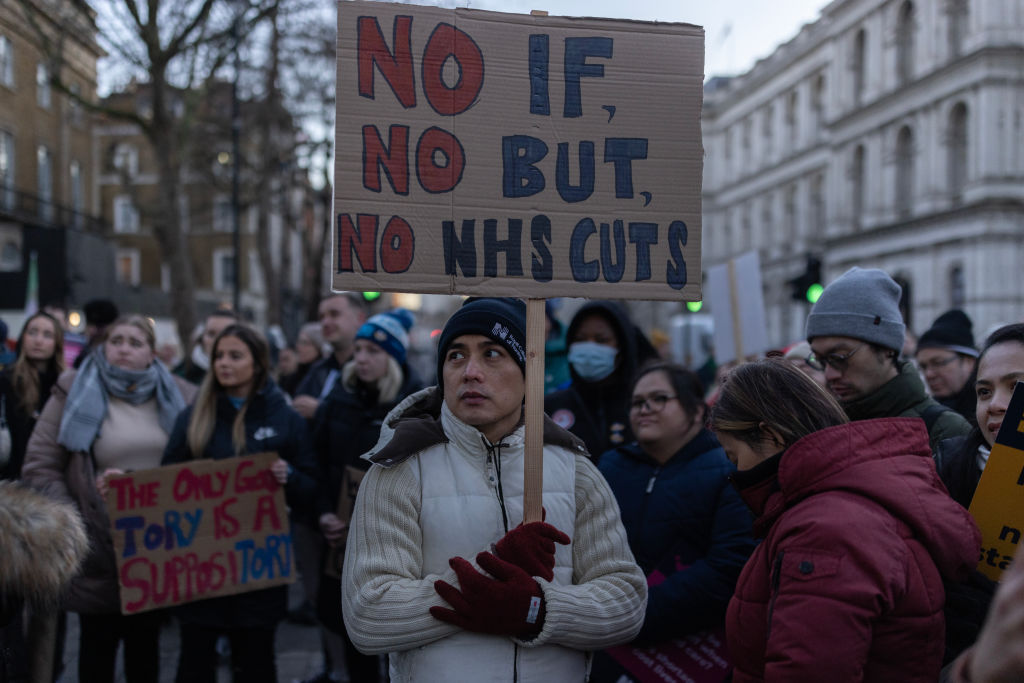Let’s be honest, we are suffering from a national crisis of bad vibes

Strikes, NHS waiting lists, high energy prices and a constant stream of news about horrific crimes, natural disasters and economic gloom, Britain’s Bad Vibes are keeping us down, writes Matthew Lesh
In October 1980, at the first US presidential debate, Republican challenger Ronald Reagan asked, “Are you better off than you were four years ago?” Reagan pointed not only to the prices in shops and unemployment but also asked whether America was respected, secure, and strong. He told people who didn’t like the vibes to vote differently, and they did, turfing out incumbent Democrat Jimmy Carter.
Today, the United Kingdom is facing a similar predicament. It’s not just that the statistics are flashing red – inflation has skyrocketed and economic growth is anaemic – but there’s even more below the surface. We’re facing a Crisis of Bad Vibes. This crisis may partly be a response to the objective facts before us, but it risks sinking us further and creating a doom spiral.
We experience this reality every day. We wake up in the morning only to wonder whether the train will be overcrowded, delayed or cancelled. We read news stories about the avalanche of teachers, ambulance staff, nurses and firefighters on strike. A Christmas card sent back in December only just arrives in the mail. The evening rush to a supermarket for a quick dinner is just another reminder that everything is getting more expensive.
If that wasn’t enough, a family member is waiting for treatment on the NHS while a friend is facing a ridiculous rent increase. The evening news is about a criminal let out of jail far too soon, committing another heinous act, or another story about war and natural disasters. Meanwhile, taxes are on their way up, despite the quality of public services appearing to be on their way down.
No wonder Rishi Sunak is doing awfully in the polls, despite the general lack of enthusiasm for Keir Starmer. Not only that, but the government can only ever seem to achieve very little. Big vision has been replaced by lowering expectations and managing decline. The pessimism makes politics even more zero-sum. More money for one group means less for others; any reforms, be it to the NHS or housebuilding, are treated with extreme suspicion.
The malaise hurts the economy and could prevent a recovery. If there’s shrinking hope for a better future, why will businesses bother to invest? Why will people take risks by starting innovative companies? The number of UK businesses has shrunk from 6.0 to 5.5 million between 2020 and 2022 – driven by a reduction in self-employment. There have been reports from S&P Global in recent weeks about a downturn in activity across the British construction, manufacturing and service sectors. A survey in December from KPMG found 61 per cent of consumers intend to reduce spending on discretionary goods, including the likes of eating out, holidays and clothing.
There isn’t a simple solution to the Crisis of Bad Vibes. No magic switch can change everyone’s mood. Getting inflation under control, ultimately a role for the Bank of England, will help ease much of the political pressures and get the economy moving in the right direction. But building prosperity could take something different: hope. Politics has a role to play, in fixing the issues plaguing our lives, but this won’t just come top-down. We need to once again, somehow, find a way to believe our lives are on an upward trajectory.